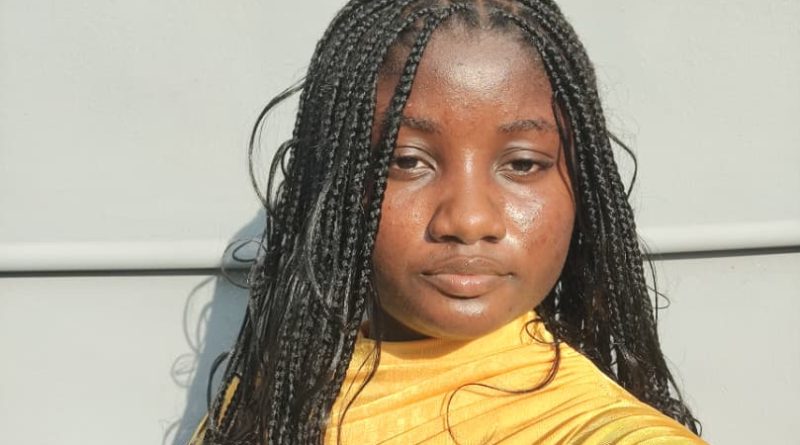Why the South-West must embrace the OKOBI model, By Lydia Ogunibe-Frederick

For centuries, the South-West has thrived on collective finance. Systems like esusu, ajo, and adashe have helped traders raise funds more quickly than any bank could have imagined. Our kinship networks, age grades, and religious unions already function as governance systems; our trade routes and markets form a vast, dynamic ecosystem. OKOBI doesn’t import a new idea — it translates our culture into a 21st-century economic model.
The sun was just beginning to climb over the rust-red rooftops of Ibadan when Mama Funke opened her stall. Her neighbours — fellow traders, cousins, and friends — were already setting up, their laughter mixing with the clang of pots and the calls of early customers. By noon, she had sold three baskets of pepper, lent money to her niece starting a catering business, and discussed plans for a cooperative with her kindred.
To an outsider, it looked like an ordinary market life. To anyone who understands Yoruba enterprise, it was something more profound — an economy powered by kinship, trust, and sheer determination. It’s this age-old spirit that a quiet movement from Imo State is now formalising into a new kind of prosperity.
It’s called OKOBI — the One Kindred, One Business Initiative — and it’s redefining how communities build wealth across Nigeria.
In just two years, OKOBI has spawned over 450 registered enterprises and created more than 20,000 jobs, demonstrating that prosperity doesn’t have to trickle down from government or foreign investors — it can emerge from within communities themselves. The secret? Families and kindreds pooling resources to start and own businesses together.
These businesses — fish farms, cassava processing units, tailoring hubs, transport cooperatives — are group-owned, profit-oriented, and locally rooted. Every member is both an investor and a beneficiary, and every community is both a stakeholder and a shareholder. It’s capitalism with a conscience — where growth is not a zero-sum game but a shared inheritance.
And if there’s any region where this model can flourish next, it’s the South-West.
The Yoruba are born traders. From the cloth markets of Lagos to the bustling roadside stalls of Osogbo, enterprise is our inheritance. The Ìyá Ọjà who rules her market, the artisans who fund each other through ajo, the families that rally behind one another’s ventures — this is not new to us. It is our way of life. What OKOBI offers is a structure for that spirit — a way to turn our informal trust systems into formal capital.
For centuries, the South-West has thrived on collective finance. Systems like esusu, ajo, and adashe have helped traders raise funds more quickly than any bank could have imagined. Our kinship networks, age grades, and religious unions already function as governance systems; our trade routes and markets form a vast, dynamic ecosystem. OKOBI doesn’t import a new idea — it translates our culture into a 21st-century economic model.
Here’s how it works. A community — often a kindred or ward group — identifies a business opportunity in its environment. They register as a cooperative or a limited liability company, pool their resources, and operate under shared ownership. Everyone has a stake. Everyone has a say. And because everyone’s reputation is tied to the business, accountability comes naturally. Profits are reinvested locally, jobs are created within the community, and wealth circulates, instead of leaking out.
It’s not charity; it’s self-determination. It’s not handouts; it’s hands joined together.
Now imagine that same spirit scaling across the South-West. Picture a youth-run tech hub in Ogun offering digital marketing to small businesses. A cooperative in Ijebu producing branded palm oil for export. A kindred-owned cocoa processing plant in Ondo reviving the region’s agricultural legacy. Every enterprise powered by local trust, local labour, and local leadership.
This is what OKOBI promises — not a top-down economy, but a grassroots one.
But to unlock this vision, structure is key — and that’s where Lead Resources, a regional leader in enterprise and innovation, comes in. With expertise in Lean Management, Business Support, and Digital Transformation, Lead Resources offers OKOBI groups the tools to thrive in modern markets. They teach communities to cut waste, design scalable business models, and use technology for transparency and growth.
Together, OKOBI and Lead Resources form a partnership that bridges heritage and modernity — one rooted in Yoruba values but driven by global business principles.
The South-West doesn’t need to reinvent entrepreneurship; it only needs to refine it. Our ancestors built wealth through trust, trade, and tenacity. Today, we have the chance to formalise that wisdom — to take ajo from the street corner to the stock exchange, and turn our kinship into capital.
Bringing OKOBI to the South-West isn’t replication; it’s restoration. It’s a return to the Yoruba truth that owo kan ko gberu d’ori — one hand cannot lift a load alone. Prosperity must first circulate within the clan before it can transform the nation.
With the right structure, the same Yoruba ingenuity that built market empires and trading guilds can now build scalable enterprises that create jobs, attract investors, and sustain communities for generations.
When kinship becomes capital and trust becomes enterprise, the South-West will not just prosper — it will lead.
Lydia Ogunibe-Frederick is a Communications and Product Manager at Lead Resources, where she contributes to enterprise support, innovation design, and community development initiatives. She writes from Abeokuta, Ogun State. Email: [email protected].

